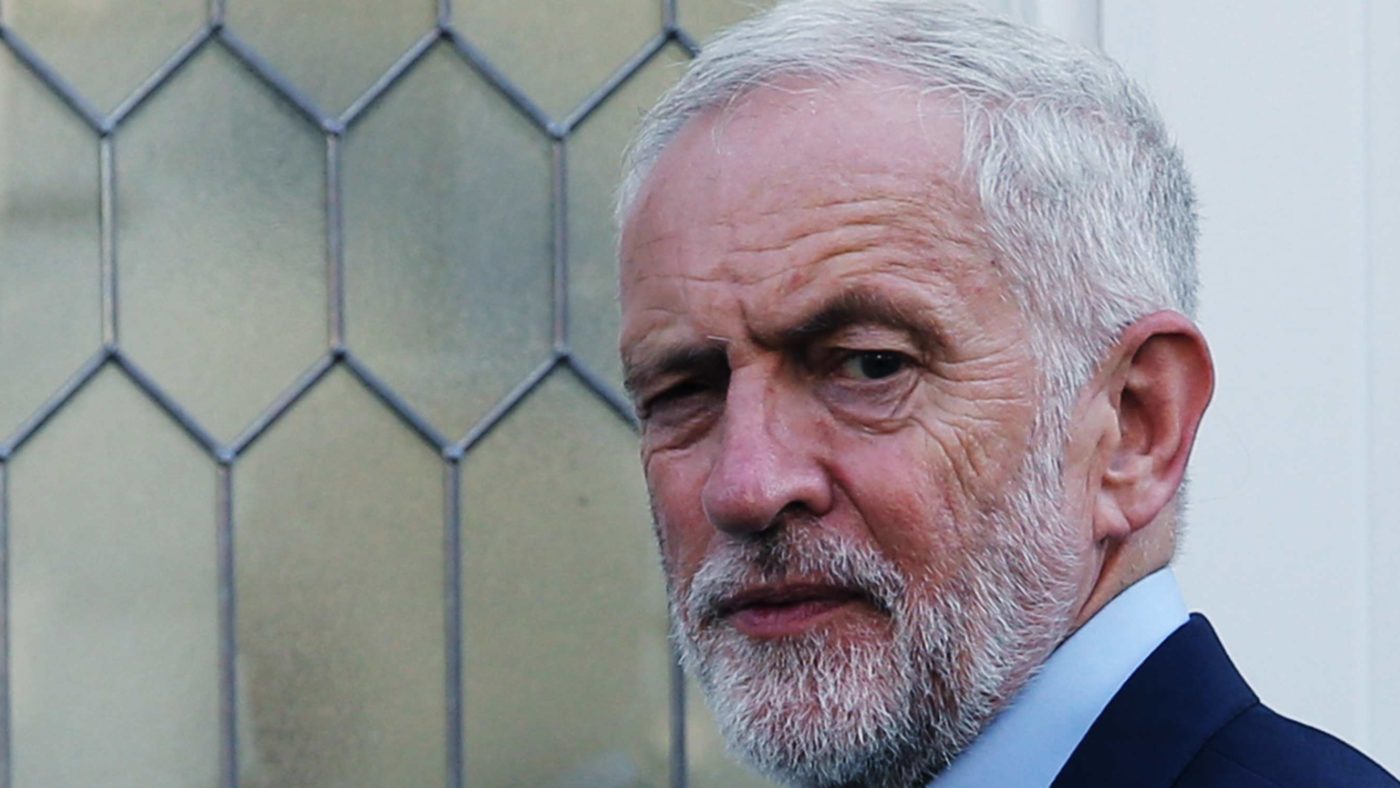Writing in the not-very-Independent, Jeremy Corbyn has pledged to do everything he can to stop a ‘“bankers’ Brexit”. This slogan is presumably designed to appeal to the hard left and the #FBPE echo chamber. Nonetheless, as lazy narratives go, it still takes some beating.
For a start, the City is hardly short of Brexit sceptics. Goldman Sachs, JP Morgan, Citigroup and Morgan Stanley all donated substantial six-figure sums to the Remain campaign ahead of the 2016 referendum. Other major Remain supporters included the financier Mark Coombs and the hedge fund owner David Harding, both counted among the dreaded ‘billionaires’. And that’s even without mentioning George Soros.
What’s more, firms in banking and finance have had to run up substantial costs for contingency planning to prepare for Brexit. Many are relocating legal entities, assets, and at least some jobs, from the UK to the rest of the EU. To be clear, the scale of these moves has been much less than some had warned, and it’s not all one-way traffic. Indeed, the UK is still by far the dominant EU player in this sector (and many others). But there’s surely little here to support the claim that the UK is heading for a ‘bankers’ Brexit’.
So, what’s Mr Corbyn driving at? Of course, he’s partly recycling the usual nonsense, peddled by many conspiracy theorists, that we are controlled by shadowy bankers and their ‘dark money’. Apparently, we are supposed to believe that Leave supporters are particularly susceptible to these evil influences.
This narrative doesn’t make any more sense if you look at the substance of what he then says. The Labour leader goes on:
‘There were reports over the long weekend that the Tories are going out with their begging bowl to billionaire hedge funders to raise cash for an autumn general election. Let no one be in any doubt what these super-rich donors will be paying for: the chaos and uncertainty caused by a no-deal Brexit is a potential goldmine for speculators betting against the pound.’
This is daft at so many levels, but let’s just turn the logic around. Does this mean that the financiers who backed Remain or who now oppose a no-deal Brexit are only doing so because they hope to gain personally from a rebound in sterling? Of course not.
I’ve seen some only slightly more sophisticated versions of this trope. In particular, many Remainers are sniffy about the boost that a weaker pound has provided to Foreign Direct Investment (FDI). They claiming that this has simply allowed foreigners to buy up UK assets ‘on the cheap’ (with special disdain, it seems, for money coming from outside the EU).
But these financial flows still represent an increase in the pool of capital available to UK businesses, including in cutting-edge fields such as the tech sector. They are also another important way in which the currency can act as a helpful shock absorber. The fall in sterling in 2016, for example, helped stabilise the UK commercial property market in the wake of the referendum result. But does this mean that property tycoons engineered all this? Again, of course not.
Mr Corbyn warms further to his theme: “But the payout for those elements of the super-rich that support no deal won’t just stop there. If we leave without a deal on 31 October, they will use the crisis to push through policies that benefit them and hurt everyone else – as they have since 2010.”
This is guff. My Corbyn does not – and cannot – explain how the ‘super-rich’ will be able to push anything through parliament. We can debate the pros and cons of bolder measures to liberalise the economy, lighten the burdens of tax and regulations, and increase consumer choice, including in the NHS. But there is simply no majority for the more sweeping changes that Mr Corbyn would have us fear.
Indeed, for all the talk of a shift to the ‘hard right’, Boris Johnson and his new team seems to be moving further away from the policies of the early 2010s. For example, Chancellor Sajid Javid has already signalled that any new tax cuts will be focused on the ‘lowest paid’, and fiscal activism is back in vogue. This will remain the case whatever form Brexit takes, and whoever is assumed to support it – even those dastardly ‘bankers’.
CapX depends on the generosity of its readers. If you value what we do, please consider making a donation.


